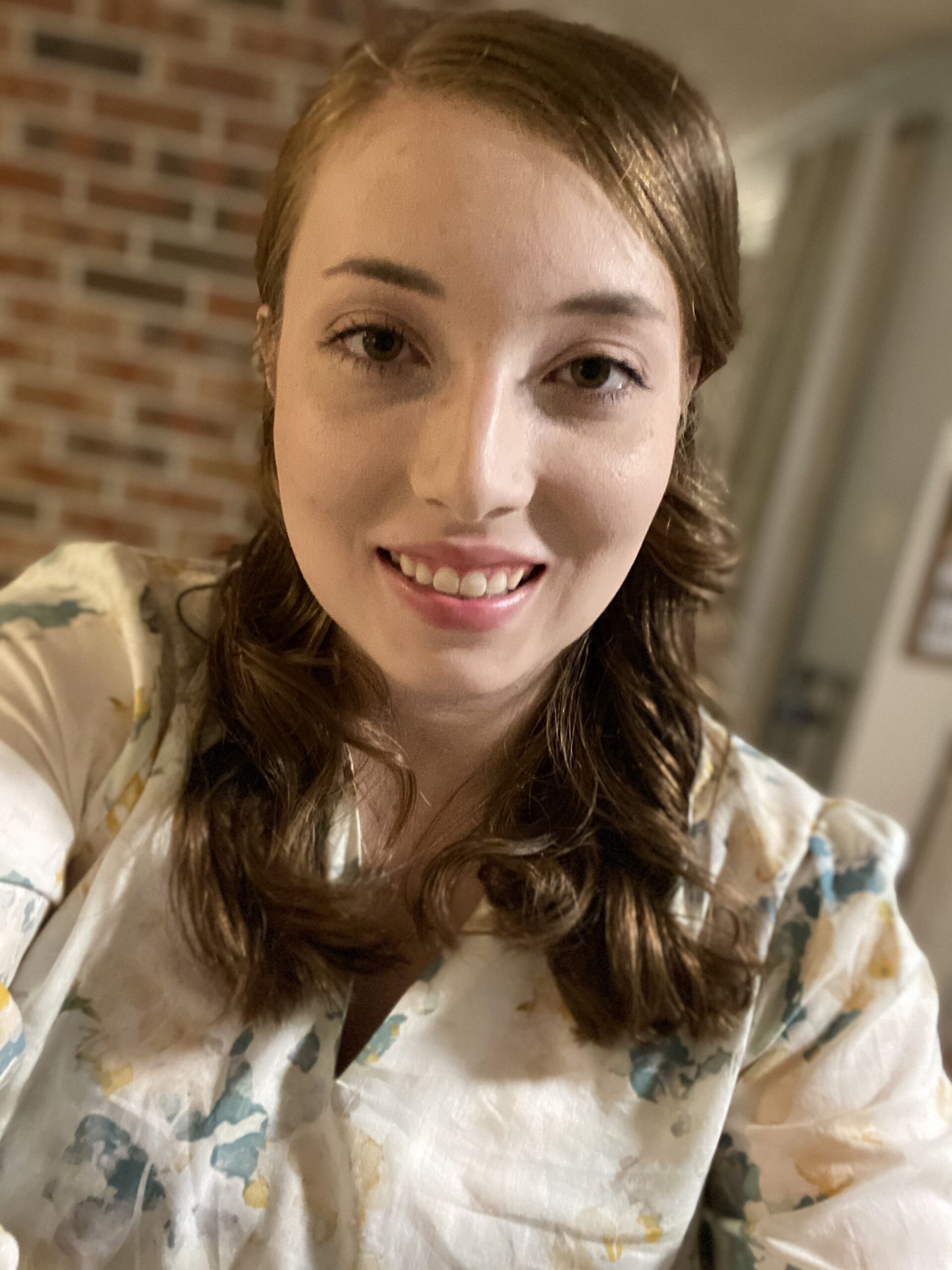Antisocial Personality Disorder and Addiction: Understanding the Connection and Finding Help



Hannah is a licensed master social worker and obtained her master's degree in social work from the University of Georgia. She currently works as a therapist with a focus on clients who have ADHD and anxiety. She has experience leading groups and working with people who are struggling with addiction and homelessness.

Kristen Fuller, M.D., enjoys writing about evidence-based topics in the cutting-edge world of mental health and addiction medicine and contributes to medicine board education.




Hannah is a licensed master social worker and obtained her master's degree in social work from the University of Georgia. She currently works as a therapist with a focus on clients who have ADHD and anxiety. She has experience leading groups and working with people who are struggling with addiction and homelessness.

Kristen Fuller, M.D., enjoys writing about evidence-based topics in the cutting-edge world of mental health and addiction medicine and contributes to medicine board education.
Table of Contents
- Understanding Antisocial Personality Disorder (APD)
- What Causes Antisocial Personality Disorder?
- Recognizing the Signs of Antisocial Personality Disorder
- Why Antisocial Personality Disorder and Addiction Often Co-Occur
- Common Substance Use Disorders With Antisocial Personality Disorder
- How to Treat APD and Addiction Together
- Get Help for Co-Occurring Disorders
Antisocial personality disorder (APD) is a type of severe mental health disorder that has a strong correlation with substance misuse and co-occurring disorders. A co-occurring disorder is a term used to describe a substance use disorder (SUD) and a mental health disorder that is occurring at the same time.1
Continue reading to learn about what antisocial personality disorder is, potential causes, the signs of antisocial personality disorder, and the relationship between antisocial personality disorder and addiction.
Understanding Antisocial Personality Disorder (APD)
Antisocial personality disorder is classified as a cluster B type personality disorder in the Diagnostic and statistical manual of mental disorders, 5th Edition (DSM 5), in which people have emotional and unpredictable behavior when interacting with other people.2 It is characterized by highly dysfunctional thought processes and deceitful, manipulative behaviors that show disregard and lack of empathy for others.2,3,4
Antisocial personality disorder can sometimes be confused with:4
- Other personality disorders due to common features.
- Substance use disorders.
- Schizophrenia and bipolar disorders.
- Criminal behavior that is unrelated to mental health disorders.
APD is correlated with a high rate of substance misuse.2,4 People who have co-occurring APD and a substance use disorder are also more likely to begin using substances at earlier ages, which can make rehabilitation a more challenging process.5
Though the concept of “addictive personality” persists in popular culture, APD is a recognized personality disorder with specific diagnostic criteria, often linked to childhood trauma and other developmental factors.
What Causes Antisocial Personality Disorder?
The exact cause of antisocial personality disorder isn’t known, but research suggests it occurs due to a combination of genetic and environmental factors, including:2
- Exposure to trauma as a child.
- Having conduct disorder or attention deficit hyperactivity disorder (ADHD) as a child.
- Experiencing changes in the brain that make the rewarding effects of drugs and alcohol more intense, whether genetically or environmentally.
Specifically, childhood trauma survivors show a significant risk of developing co-occurring disorders.1 The development is thought to correlate to attempts to self-medicate from the trauma or to manage post-traumatic stress symptoms.1
Recognizing the Signs of Antisocial Personality Disorder
Only a trained mental health professional can diagnose antisocial personality disorder, other mental health disorders, and substance use disorders. A mental healthcare practitioner can identify symptoms and prescribeappropriate treatment, which may include medication, and refer to a medical doctor for additional physical concerns.3
Criteria for being diagnosed with antisocial personality disorder include the following:4
- A pattern that demonstrates disregard or violation of rights of others since the age of 15. Must include 3 of the following:
- Consistent problems with authority or abiding by the law
- Repeated actions of conning others and lying—usually for self-pleasure or profit
- Impulsive behavior
- Irritability or aggressive behavior that can lead to fights or physical assault
- No sense of safety for self or others
- Irresponsible tendencies, such as failing to show up to work or school consistently
- Lack of remorse, empathy, or compassion, or an indifferent attitude toward mistreating another person
- The person must be 18 or older.
- A history of conduct disorder, typically before the age of 15.
- Displays antisocial behavior that cannot be explained by another diagnosis.
All other disorders should be ruled out through a careful physical examination and history intake before diagnosing antisocial personality disorder to ensure a person receives proper care and treatment.3
Why Antisocial Personality Disorder and Addiction Often Co-Occur
Personality disorder diagnoses, like antisocial personality disorder, range from 34.8% to 78% among people who are diagnosed with an addiction.5 Antisocial personality disorder and borderline personality disorder are among the top 2 personality disorders ranked for prevalence among people diagnosed with a substance use disorder.5
Studies show that antisocial personality disorder and substance misuse are often influenced by trauma.2 Overlapping causes for co-occurring substance use and mental health disorders include stress, epigenetics, brain changes, and adverse childhood experiences.1
Additionally, researchers believe that antisocial personality and substance use disorders are commonly diagnosed together because of impulsive and aggressive tendencies.6 Both disorders affect the same part of the brain, leading to an increased risk of aggression and impulsivity.6
Antisocial personality disorder and borderline personality disorder are among the top 2 personality disorders ranked for prevalence among people diagnosed with a substance use disorder.5
Common Substance Use Disorders With Antisocial Personality Disorder
Alcohol, cannabis, and nicotine use disorders are most commonly diagnosed in people with antisocial personality disorder.6 There’s an increase in the chances of a person receiving an antisocial personality disorder diagnosis if they have long-term drug use that exceeds 12 months.7
A pattern of polysubstance misuse can also be observed in those who have antisocial personality disorder and who misuse substances.7 This may be attributed to what’s available to the person at the time of use. As teenagers and children are developing, substances can have a greater impact on their brain functioning, resulting in more severe mental illness and substance use disorder symptoms.1
Alternatively, having a mental illness in childhood increases the odds that a person will be diagnosed with a substance use disorder.1 Better diagnosis methods and identification can help bridge this gap in care that can later lead to co-occurring disorders.1
How to Treat APD and Addiction Together
Individualized treatment is important when treating mental health and substance use disorders to ensure each person gets the appropriate level of care and support necessary to help them recover.8
The following are different types of treatment used for co-occurring antisocial personality disorder and substance use disorder:5
- Behavioral therapies like dialectical behavioral therapy have been found to be effective for personality disorders in some studies. However, more research and analysis need to be done.
- Pharmacotherapy, or the use of medication, is highly encouraged to help treat aspects of antisocial personality disorder and SUDs. Medications can help address aggression, impulsivity, ADHD, anxiety, and moods associated with antisocial personality disorder, like depression. Medication for the treatment of certain SUDs can help reduce withdrawal symptoms and reduce cravings when a person enters treatment.
Unfortunately, there aren’t many studies available that report on effective treatment for co-occurring antisocial personality disorder and substance use disorder.2 This is due to a multitude of challenges that people face when getting treatment.
The following are common challenges a practitioner may encounter when treating a person with antisocial personality disorder and substance use disorder together:2
- Higher risk for incarceration, which can delay or block treatment altogether.
- Research has shown that hospitalization is an ineffective method of treatment and can often escalate the behavior.
- Many people are noncompliant with treatment, making regular treatment attendance difficult.
- The treatment team may not be properly trained in treating psychiatric conditions like antisocial personality disorder.
Get Help for Co-Occurring Disorders
Living with or supporting a person with co-occurring disorders can be challenging; however, with support, you or a loved one may find the help they need to stop using substances and start on a new path.
If you or a loved one is ready to seek rehab for a substance use disorder, explore your options and reach out to a rehab center using our rehab directory tool today!
FAQs
-
National Institute on Drug Abuse. (2018, August 1). Comorbidity: Substance Use Disorders and Other Mental Illnesses DrugFacts. https://nida.nih.gov/publications/drugfacts/comorbidity-substance-use-disorders-other-mental-illnesses
-
Fisher, K.A. & Hany, M. (2022, May 15). Antisocial Personality Disorder. StatPearls [Internet]. Treasure Island (FL): StatPearls Publishing; 2022 Jan-. https://www.ncbi.nlm.nih.gov/books/NBK546673/
-
American Psychiatric Association. (2018, November). What are personality disorders?. https://web.archive.org/web/20230128192342/https://www.psychiatry.org/patients-families/personality-disorders/what-are-personality-disorders
-
Parmar, A. & Kaloiya, G. (2018, November-December). Comorbidity of personality disorder among substance use disorder patients: A narrative review. Indian J Psychol Med. 40(6). https://www.ncbi.nlm.nih.gov/pmc/articles/PMC6241194/
-
Substance Abuse and Mental Health Services Administration. (2020). Substance Use Disorder Treatment for People With Co-Occurring Disorders. https://store.samhsa.gov/sites/default/files/SAMHSA_Digital_Download/PEP20-02-01-004_Final_508.pdf
-
National Institute on Drug Abuse. (2020, September 18). Principles of Effective Treatment. https://www.ncbi.nlm.nih.gov/books/NBK424859/table/ch4.t2/
Our Promise
How Is Recovery.com Different?
We believe everyone deserves access to accurate, unbiased information about mental health and recovery. That’s why we have a comprehensive set of treatment providers and don't charge for inclusion. Any center that meets our criteria can list for free. We do not and have never accepted fees for referring someone to a particular center. Providers who advertise with us must be verified by our Research Team and we clearly mark their status as advertisers.
Our goal is to help you choose the best path for your recovery. That begins with information you can trust.














